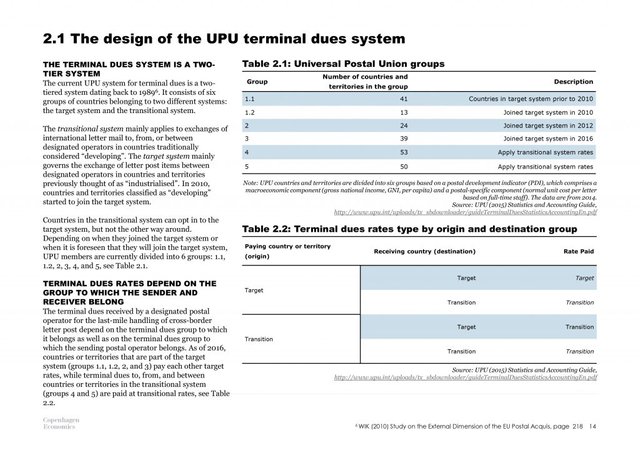The US Withdrawal From Universal Postal Union and The Effects on Ecommerce

On Wednesday, October 17th, 2018, the Trump administration announced it will be withdrawing from the 144-year old Universal Postal Union. The announcement comes with a caveat as the US administration is willing to renegotiate terms of the treaty and refrain from leaving the UPU.
The Universal Postal Union
The Universal Postal Union was established in 1874 at the behest of the US government in order to coordinate postal policies for international mail. Prior to the establishment of the UPU, a country was required to maintain a separate postal treaty with other nations.
Sending international mail prior to the UPU meant you had to calculate the fees in your own country, the fees for transferring of the mail, for example if your mail piece went from the US, to the UK, then to France, before the final delivery country. You also had to calculate the fees for transit in the final destination country.
The greatest achievement of the UPU is the standardization of international mail, allowing mail to travel internationally in a systemized fashion that allows the mail to reach its destination at a fixed cost. The three rules established by the UPU were:
- There should be a more or less uniform flat rate to mail a letter anywhere in the world
- Postal authorities should give equal treatment to foreign and domestic mail; and
- Each country should keep all the money it collected for international postage.
The White House's Decision to Withdraw
The White House decision to force renegotiations is due to a pivotal factor of the UPU terminal dues system and part of the ongoing effort to counter China in what the White House says is a history of unfair trade.
Postal Regulatory Commission 2017 Report on Terminal Dues (PDF)
When the UPU was determining the fees each country would pay, they decided on separate price structures for industrialized nations and developing nations. The People's Republic of China, a developing nation at the time of its joining the UPU, is able to utilize this lower price structure.
Even though China pays the US terminal dues according to the shipping difference between the two countries, it's not enough. Due to China's status as a developing nation, it is cheaper to ship a parcel from China to the US than it is to ship a parcel from Los Angeles to New York.
Regardless, the White House making the threat of leaving the UPU is a public show of force much more than it is an earnest effort at changing the system. There are plenty of other options available in terms of renegotiating the treaty. In fact, the US has negotiated separate terminal due formulas with Canada and several countries in the European Union. By making this decision so public, the US is very openly signalling a new front in its ongoing trade war with China.
China's Foreign Ministry Spokesperson, Lu Kang, was questioned by journalists on what he thought of the White House's decision to withdraw from the UPU as "It is widely seen as another move targeting China by the Trump administration.".
Lu Kang had this to say, "First of all, I want to say that the US side has recently withdrawn from more than one organization. It has its own considerations behind these choices, but it is not necessary to involve China.
We express regret over the US decision to withdraw from the Universal Postal Union (UPU). The UPU is a UN specialized agency responsible for the international postal affairs. It plays a positive role in strengthening the links between countries and promoting trade facilitation. China is committed to upholding multilateralism and plays an active role in supporting the work of the UPU. We will continue to work with all relevant parties to contribute to the development of the international postal cause."
The Effects on Ecommerce
With the growth of ecommerce and sites like Aliexpress, China accounts for 60% of the international mail entering the United States. This explosion of volume has turned the clock back to the era before terminal dues were introduced, especially so when China is receiving reduced rates.
Renegotiation of these terms were inevitable as it has been a longstanding issue. In the 2015 report, Terminal Dues in the Age of Ecommerce (PDF), the U.S. Postal Service Office of Inspector General reported that, "The terminal dues received by the U.S. Postal Service do not fully cover costs, leading to a loss on inbound mail and small packages"
However, it's important to understand this decision does not affect ecommerce across the board. The UPU and the postal treaty only affect packages below or at 4.4 pounds (2 kg) as the treaty only covers packages up to that weight. This mainly affects sellers that were directly selling to consumers and thus shipping small parcels. These were typically the kinds of products that had 2-3 week shipping times, with pricing far below competitors, and free shipping.
The effect on the imbalance of ecommerce is unlikely to change. The manufacturing capability in China for low priced products is currently too great to be overcome by slightly increased shipping costs. As this doesn't affect bulk shipments, it means that low priced products will continue to be shipped to the US and sold domestically.
Sellers who relied on this business to consumer aspect of ecommerce will tack on their increased costs into their pricing. If products remain competitive regardless of these increased shipping fees, then it is inevitably the consumers who will feel the bulk of the changes.
Posted from my blog with SteemPress : http://leonox.me/2018-10-19/posts/technology/ecommerce/the-us-withdrawal-from-universal-postal-union-and-the-effects-on-ecommerce/

Congratulations @leonoxme! You have completed the following achievement on the Steem blockchain and have been rewarded with new badge(s) :
Click here to view your Board of Honor
If you no longer want to receive notifications, reply to this comment with the word
STOPDo not miss the last post from @steemitboard: